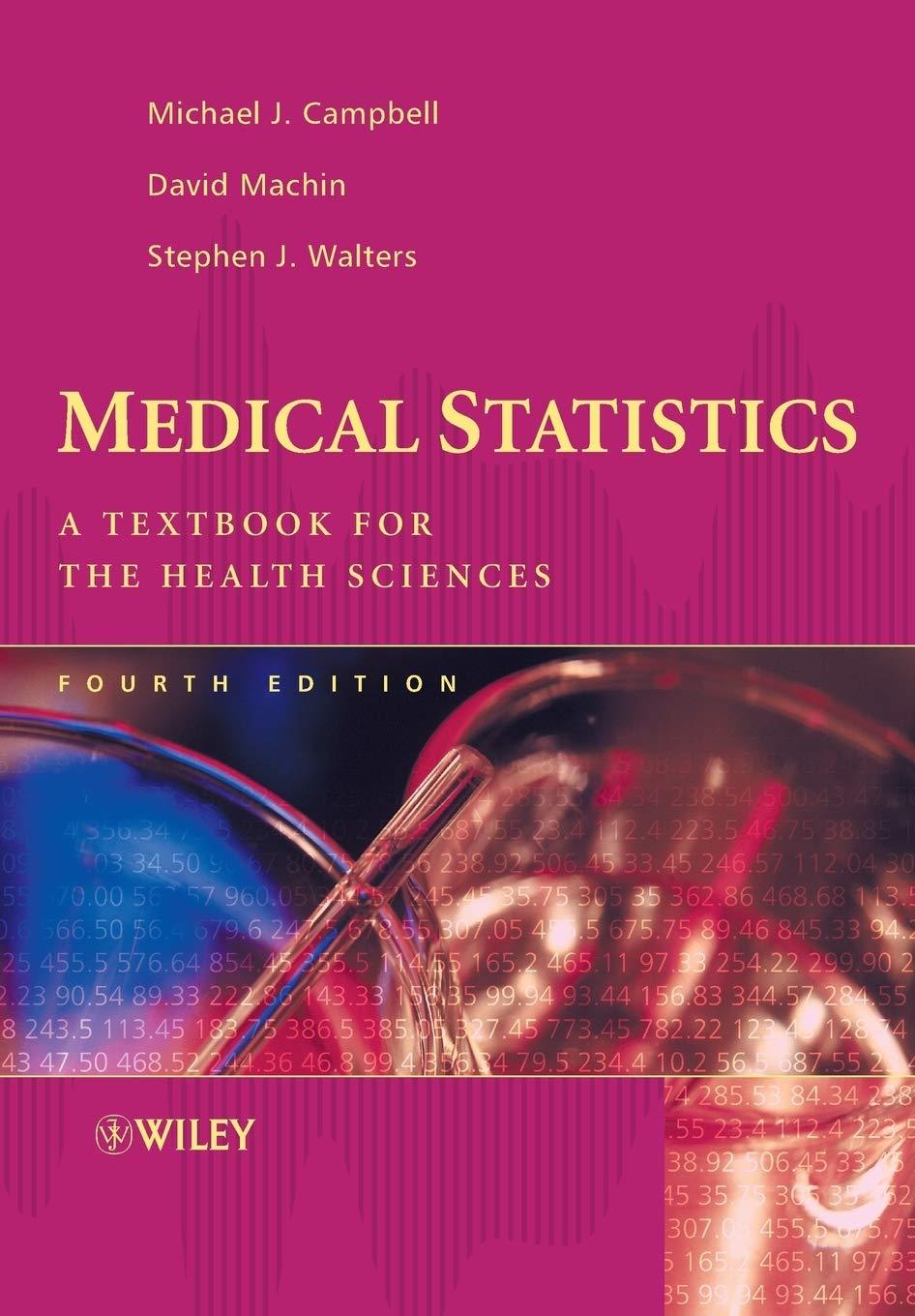A study by Taylor et al (2002) investigated whether the measles, mumps and rubella (MMR) vaccination was
Question:
A study by Taylor et al (2002) investigated whether the measles, mumps and rubella (MMR) vaccination was associated with bowel problems and developmental regression in children with autism. The authors reviewed the case notes for 278 children with core autism and 195 with atypical autism from fi ve health districts in north-east London, England born between 1979 and 1998. This time frame was chosen as it included the date when the MMR vaccination was introduced in October 1988. The authors examined whether the proportions with developmental regression and those with bowel problems changed during the 20 years. The p-values associated with the change over time were 0.50 and 0.47 respectively.
In addition the authors examined whether there was any association between bowel problems and developmental regression. Of the 118 children with developmental regression, 26% reported bowel problems, whilst of the 351 without developmental regression 14% reported bowel symptoms. The difference was 12.3% (95% CI 4.2% to 21.5%).
(a) Write suitable statistical null hypotheses for this study. What are the alternative hypotheses to these?
(b) Was there a statistically signifi cant difference in the proportions with developmental regression during the 20-year study period?
(c) Was there a statistically signifi cant difference in the proportions with bowel problems during the 20-year study period?
(d) What does the confi dence interval for the difference in with bowel problems for the children with and without developmental regression tell you? Would you expect the p-value for this difference to be greater than or less than 0.05?
Step by Step Answer:

Medical Statistics
ISBN: 9780470025192
4th Edition
Authors: Michael J. Campbell, David Machin, Stephen J. Walters






